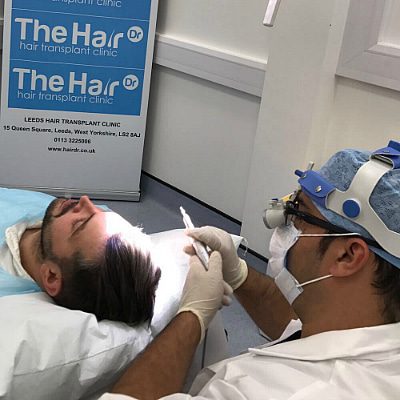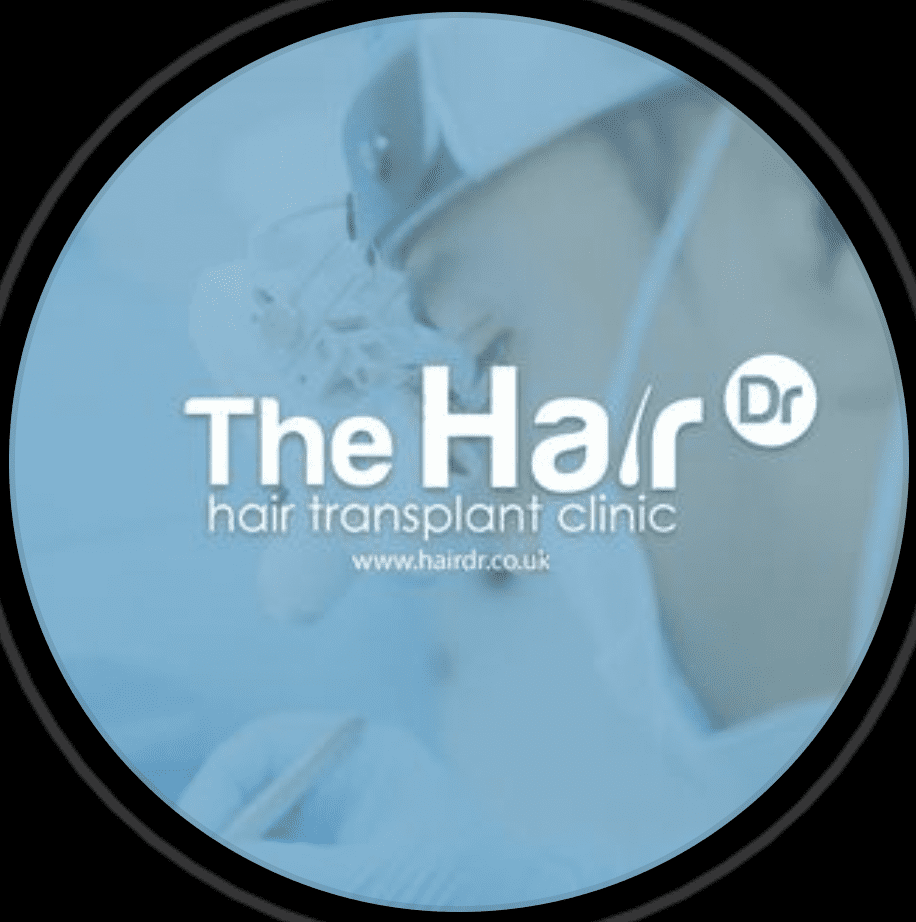It can be confusing to understand a medical procedure. Therefore the Hair Dr is at hand to help understand hair transplantation. The aim, to understand the hair transplant experience. For example, who is a good suitable candidate. As well as if there are side effects. All the pros and cons to hair transplant and hair restoration.
WHAT IS HAIR TRANSPLANTATION?
Hair transplantation uses natural hair groups. Called follicular units. As a result more natural results are achieved. Achieved with Follicular Unit Transplant and Follicular Unit Extraction. The two recognised hair transplant techniques. A hair transplant moves hair follicles. From the donor zone to the recipient area. The donor hair is normally around the back and sides of the head. This has been the tradition. Although donor area can be from other body areas. Such as beard, chest and legs for example. As long as the hair quality is strong enough.
HOW IS IT PERFORMED?
Normally hair transplants are day procedures. Performed under local anaesthesia. With no hospital stay required. First, the hairs are removed from the donor area. Performed using one of two techniques. FUT or Strip removes a hair bearing strip. Which is then divided under a microscope into individual hair units. FUE removes hair follicles one by one. Hair transplants often move thousands of hair follicles. It can be slow and labour-intensive. As a result experienced staff are needed. As a hair transplant can take a full day.

WHO IS SUITABLE?
Not all are good hair transplant candidates. It can depend on the hair loss cause. For example, male pattern baldness. Hereditary hair loss (MPB). Also known as androgenetic alopecia. This is the most common hair loss condition. Many MPB sufferers are suitable hair transplant candidates. Assuming enough donor hair is available.
That said, hair transplants are not limited to treating genetic hair loss. Alternative hair loss conditions can also benefit. For example, scarring, from accidents. Traction alopecia from tight braiding is also possible. For this reason, it’s best to seek advice. Discuss your hair loss with a hair loss specialist. Dermatologist or hair transplant surgeon. Hair transplants can treat others areas of hair loss. Such as eyebrows and eyelashes. Also, for men, moustaches and beards.
WHO IS NOT SUITABLE?
Some hair loss causes may reoccur. Be systemic or autoimmune related. Such as alopecia areata, thyroid disease, diabetes and anaemia. Other bad hair transplant candidates include self-induced hair loss. Hair-pulling, called trichotillomania. Other reasons include drug-induced and post pregnancy hair loss. Planning is important. To achieve the best and long-lasting result. Ideally, hair loss is stabilised first. Or, at least under control before considering hair transplantation. As a result, candidates in the early stages of genetic hair loss may not be suitable. Often, better to find an alternate treatment. Such as minoxidil for men and women. Or a hormonal based treatment.
HOW IS ANDROGENIC HAIR LOSS CAUSED?
So, androgenetic hair loss is genetic. Resulting from the presence of hormone receptors. In particular the receptor known as dihydrotestosterone (DHT). DHT triggers the hair loss gene. Androgenic hair loss is predominantly isolated to the top of the scalp. From hairline area back over the mid-scalp and vertex region. DHT receptors are not found on hair follicles around the back and sides of the head. As a result, they do not suffer from hair loss. Hence can be used for a hair transplant. These hair follicles are genetically permanent. The pattern of hair loss is largely determined by hereditary tendencies. For example, inherited from either the mother and father’s gene pool. Androgenetic alopecia is progressive. As a result, the need for multiple hair transplants.
IS A HAIR TRANSPLANT PERMANENT?
The hairs used for a hair transplant are immune from hair loss. As they have no DHT receptors. Consequently, even when moved they remain programmed to grow. Continuously, without hair loss. Therefore, a hair transplant, performed to a high standard is permanent.
WILL I CONTINUE TO LOSE HAIR?
Genetic hair loss is commonly progressive. In some cases hair loss can slow down. Even plateau after a certain age. Medical treatments can help. Subsequently can slow or stop hair loss. Important to note, treatments only work while used. Although, other hair loss condition results may vary. For example caused by an injury. The condition may be stable. Hereditary hair loss can develop simultaneously though.
WHAT ARE THE POSSIBLE SIDE EFFECTS OF A HAIR TRANSPLANT?
After a hair transplant small scabs appear. Over the transplanted area. Normally lasting for 10-14 days. In some case slight swelling may occur. Around the forehead. While harmless there maybe mild discomfort for a few days. Infection is very rare. The donor area depends on the technique. Either a thin, narrow scar (usually about 1mm wide) or small punch scars. Regardless, both can be hidden by the remaining hair.
WILL I NEED TO TAKE TIME OFF FROM NORMAL ACTIVITIES?
Largely depends on the individual circumstances. Medically you are fit to return to most activities. You are physical fit the day after surgery. The first week avoid strenuous physical activity. Refrain from dusty or dirty environments. The scabbing may mean you wish to stay home. Especially if cannot be covered by hair. That said a cap can be worn. Once the scabs fall there is nothing to see. That is until the new hairs start to grow. The new hair growth takes around 3-4 months.
WILL THE NHS PAY FOR SURGERY?
Surgical hair restoration is considered a cosmetic treatment. As a result, it is not normally offered under the NHS. Therefore must be sought privately. Exceptions are sometimes made in cases of scalp or facial injury/burns, and occasionally other operations are necessary such as scalp skin flaps to cover large defects or areas of hair loss.
WHERE CAN I GET MORE INFORMATION ABOUT HAIR TRANSPLANTATION?
British Association of Hair Restoration Surgery
www.bahrs.co.uk
International Society of Hair Restoration Surgery
www.ishrs.org
If you have any questions, then please feel free to contact us today on either method T: 0808 169 7210. E: info@hairdr.co.uk alternatively you can book a free consultation via our website.









